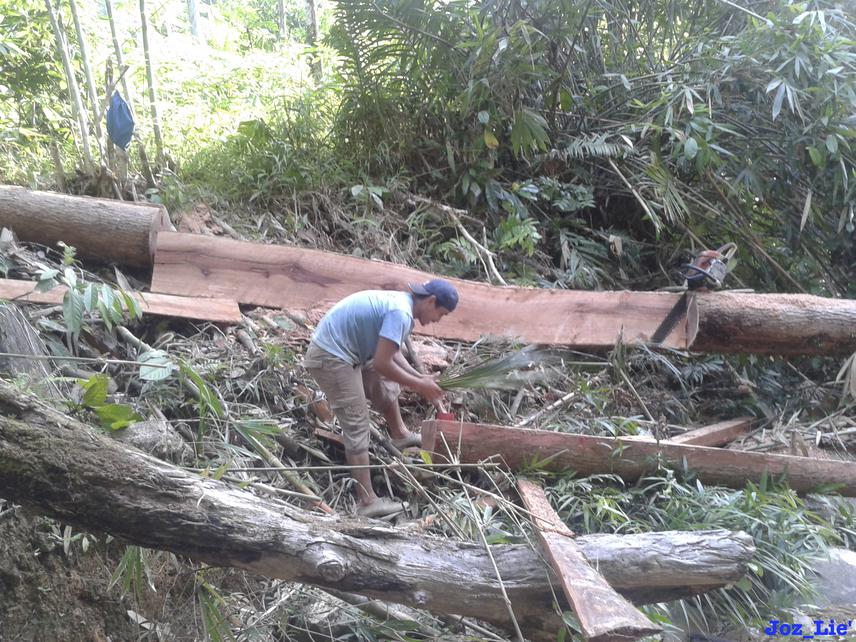Julia Anak Nelson
This project aims to study on the compatibility between the Forest Law and the Native Law in forest and as well as to find the impact of the existing forest laws towards the forest dependent Bidayuh indigenous community in Sarawak.

Site picture.
Some of the biggest conflicts between the Forest Department and the indigenous people is the process of gazetting the forest reserves by which, this process has caused the native to lose control over their traditional lands (Su & Grace, 2005) and the Native Customary Rights practiced in Sarawak is found to be conflicted with the traditional open system of land ownership or better known as ADAT (Xanthaki, 2003). Therefore, this project will address the gap between the existing law instruments especially, on the issues regarding indigenous land rights. A list of comparison between the Forest Law and the Native Law will highlight the similarity, differences and weaknesses of these 2 laws in which, the compatibilities of the laws can be stated. The study on the compatibility of the existing laws (i.e. the Forest Law and the Native Law) will provide a good reference for future law making process in taking and addressing the indigenous people’s rights as are recognized in the international human rights and international indigenous right system. The impacts of the existing laws to the Bidayuh community’s livelihood in terms of their economic, social and environmental conditions will be determined by taking into account the community’s opinion and living condition.
The outcomes of this study will contribute to the main criteria in any policy making process involving the indigenous people. Two types of method will be carried out for this research: i) Reviewing the literature (i.e. legal documents, journals etc.) and ii) Interview (questionnaire survey, focus group discussion, audio-video rituals, observation and proxy-indicators). The data collected from the will be analysed qualitatively. A small Bidayuh village in Kuching Division will be selected as the study area for this research and with only the head of family will be involved in the interview. Initially it is assumed to take 80-100 respondents for the field investigation.
Results of the proposed study on the compatibility of the two existing law (i.e. native customary rights and Forest Law) will be helpful to recognize the legitimate indigenous rights of the Bidayuh communities. The results might have practical implications in policy and program formulation and implementation for the indigenous people resolving the existing conflicts between these two laws. It is assumed that the result of this pilot study will create avenues for further research and discussion among the academia and professionals.